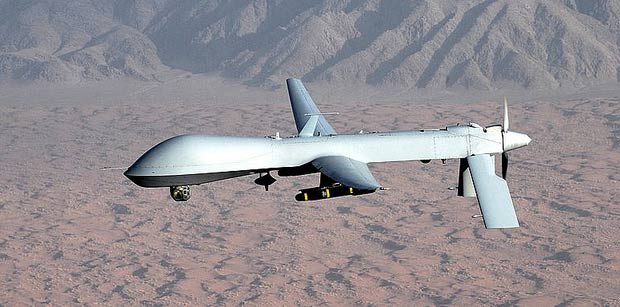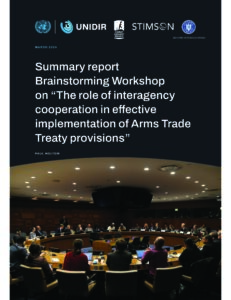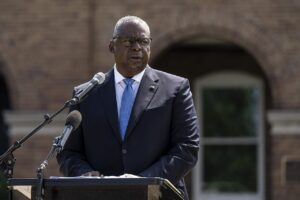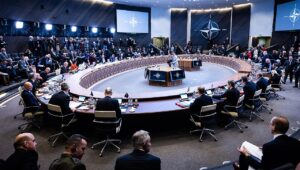The Challenge
Drones have become a dominant feature of U.S. national security policy, even as they have been a topic of significant debate, with critics calling into question the overall efficacy of targeted drone strikes and highlighting the threat posed to innocent civilians. Continued secrecy surrounding the U.S. drone program makes it difficult to undertake assessments about the efficacy of the program and whether the benefits of lethal drones outweigh the risks.
The United States’ use of armed drones — particularly in areas outside established war zones —has prompted numerous debates about the ethical and strategic implications of unmanned attacks, including on perceived threats to the United States and U.S. interests. Central to these debates are questions of how lethal drone strikes will shape the use of force in the future. Criticism of the U.S. drone program has been based largely on the effectiveness of targeting key terrorist leaders, the use of primarily lethal force to combat terrorism, the propensity for blowback and anti-American sentiment, the erosion of sovereignty, and the potential for lowering the threshold for entering conflict. A central concern is that the U.S. drone program could prompt other countries to adopt similar policies and practice, which could set a dangerous precedent.
The Stimson Center’s Drone project has achieved significant success in efforts to ensure U.S. drone policy is transparent, accountable, and consistent with long-term U.S. national security goals, and is setting an appropriate international precedent for the use of drones internationally.
Our Approach
Stimson’s Drones project brings together seemingly disparate actors from across government, as well as industry and non-government experts, to comprehensively examine U.S. drone policy. Our work focuses on questions of transparency, accountability, and overall efficacy of current U.S. program, taking into account targeted killing components as well as economic considerations, export concerns, and impact on development of international standards. Amidst a politically fractious landscape, Stimson has maintained its respected status for its “common sense approach” to an often divisive public and political debate on drones — and has cemented its reputation as an independent, nonpartisan source for drone analysis and policy recommendations. Stimson seeks to engage the Trump administration to ensure that the U.S. lethal drone program supports strategic interests as well as national values and foreign policy ideals. Stimson works towards a comprehensive U.S. drone policy that identifies the technology itself as a tool of, rather than a replacement for, a larger strategy that upholds core U.S. values of transparency, accountability, and responsibility. Our work aims to support the development of appropriate international norms and standards for drone export and use. Stimson engages a variety of stakeholders — the administration, industry, and the nongovernmental sector — to accomplish its objectives.
Our Impact
The Stimson Center’s Drones project has achieved significant success in efforts to ensure U.S. drone policy is transparent, accountable, and consistent with long-term U.S. national security goals, and is setting an appropriate international precedent for the use of drones internationally.
In 2014 the Stimson Center released a landmark report from a senior-level, nonpartisan task force co-chaired by Gen. John P. Abizaid (Ret.), head of U.S. Central Command from 2003 to 2007, and Rosa Brooks, counselor to the U.S. undersecretary of defense for policy from 2009 to 2011. The task force was composed of senior military and intelligence officials as well as legal experts from the Obama, George W. Bush, and Clinton administrations. The report offered eight pragmatic recommendations to reshape U.S. drone policy — from fostering the development of appropriate international norms for the use of lethal force outside of traditional battlefields to improving transparency in targeted UAV strikes.
In 2016, Stimson released a follow-on report: Grading Progress on U.S. Drone Policy. The report reviewed the recommendations from the 2014 Task Force and assigned a letter grade to evaluate progress in each category — and offered six recommendations the Obama administration could consider prior to leaving office without significant delay or cost to ensure a sensible and comprehensive U.S. drone policy.
Stimson regularly engages with U.S. government officials on ways to implement the policy recommendations to adopt transparency and accountability measures. Stimson also routinely engages with foreign governments and international organizations to develop global norms and standards surrounding drone export and use — and works with civil society partners around the world to foster transparency, accountability, and responsibility of the U.S. and international drone programs.
Our work on U.S. drone policy has significant impact beyond the beltway, drawing global attention in the press, as well as public recognition. The 2016 Prospect Think Tank Awards — which celebrated outstanding global impact among think tanks worldwide — shortlisted Stimson’s Drone project in the category of “U.S. International Affairs.” The task force report also resonated culturally, and was used to inform the production of the hit off-Broadway play GROUNDED, directed by Julie Taymor and staring Anne Hathaway as a drone pilot suffering post-traumatic stress disorder.




